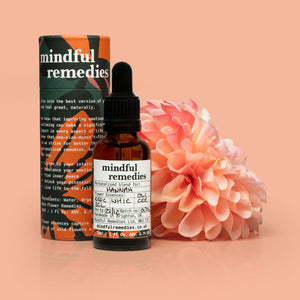your basket
- choosing a selection results in a full page refresh

Standing up for yourself is an essential life skill that is often overlooked. We all encounter situations in life where we feel we are being treated unfairly or disrespected, whether it’s in our personal relationships, workplace, or even in public spaces. It’s crucial to stand up for ourselves in these situations, as it can help us maintain our self-respect and self-esteem, and also prevent us from being taken advantage of.
One of the primary reasons why it is essential to stand up for oneself is that it helps us establish healthy boundaries. When we assert our boundaries, we communicate our expectations, needs, and limits to others, which can help prevent us from being exploited or mistreated. For example, if someone constantly makes fun of us or belittles us, we can let them know that their behaviour is unacceptable, and we will not tolerate it. By doing so, we are setting clear boundaries and sending a message that we expect to be treated with respect.

Standing up for oneself can also help build confidence and self-esteem. When we advocate for ourselves, we are taking charge of our lives and making our needs a priority. This can help us feel more empowered and in control, which can boost our self-confidence and self-worth. Additionally, standing up for oneself can help us overcome fear and anxiety, as it involves confronting difficult situations head-on and not backing down.
Another benefit of standing up for oneself is that it can improve communication and relationships with others. When we communicate our needs and boundaries clearly, it helps others understand us better and can prevent misunderstandings or conflicts. It can also help us build stronger, more respectful relationships with others, as they will be more likely to treat us with the respect and consideration we deserve.
When individuals do not assert themselves, they risk experiencing a range of negative consequences that can negatively impact their mental and emotional wellbeing. In this section, we will explore the consequences of not standing up for oneself, including a loss of respect from others, reduced self-confidence, poor self-image, and missed opportunities.
When individuals fail to stand up for themselves, they may be seen as pushovers by others. This can lead to a loss of respect from co-workers, friends, and family members. People may take advantage of those who do not assert themselves, leading to a loss of trust and confidence in their abilities. This lack of respect can negatively impact relationships, leading to a decrease in social support and feelings of isolation.
Another consequence of not standing up for oneself is a decrease in self-confidence. When individuals do not assert themselves, they may begin to doubt their abilities and feel powerless in their own lives. This can lead to a decrease in self-esteem and feelings of inadequacy. A lack of self-confidence can impact every aspect of an individual's life, from personal relationships to career success.

A third consequence of not standing up for oneself is a poor self-image. Individuals who do not assert themselves may begin to see themselves as weak or incompetent, leading to negative self-talk and a decrease in self-worth. This can lead to a negative spiral of low self-esteem, which can impact an individual's ability to achieve their goals and lead a fulfilling life.
Finally, failing to stand up for oneself can lead to missed opportunities. When individuals do not assert themselves, they may miss out on career opportunities or personal growth experiences. They may not speak up in meetings or negotiate for better pay, leading to missed chances for advancement. Additionally, individuals may not take risks or try new things, leading to a lack of personal growth and fulfilment.
Standing up for yourself can be a challenging and intimidating task, but it can also bring many benefits. Whether it's standing up for your beliefs, your rights, or your personal boundaries, asserting yourself can have a positive impact on your self-esteem, your relationships, and your overall well-being. Here are four ways in which standing up for yourself can be beneficial.
When you stand up for yourself, you send a message to yourself and others that you value yourself and your beliefs. This can increase your self-respect and self-esteem, as you start to see yourself as someone who is worthy of respect and consideration. By speaking up for what you believe in and setting boundaries that protect your wellbeing, you will feel more empowered and in control of your life.

Standing up for yourself can also improve your relationships with others. When you assert yourself in a respectful and assertive manner, you are communicating your needs and desires clearly. This can help to prevent misunderstandings and conflicts and can also increase trust and mutual respect. Additionally, by setting boundaries and communicating your expectations, you can avoid being taken advantage of or mistreated by others, which can lead to healthier and more fulfilling relationships.
One of the most significant benefits of standing up for yourself is that it can reduce stress and anxiety. When you hold back your feelings or don't assert yourself, you may feel frustrated or resentful, which can lead to stress and anxiety. However, when you stand up for yourself and express your thoughts and feelings, you release those pent-up emotions, which can be cathartic and empowering. Additionally, by setting boundaries and standing up for your needs, you can reduce the stress and anxiety that comes from feeling overwhelmed or overcommitted.
Finally, standing up for yourself can increase your confidence and resilience. When you assert yourself and face your fears, you build confidence in your ability to handle challenging situations. This can translate into other areas of your life, as you become more confident in your abilities and more willing to take risks and pursue your goals. Additionally, by standing up for yourself, you develop a sense of inner strength and resilience that can help you navigate difficult times and bounce back from setbacks.
Standing up for oneself can be a challenging task for many people. Whether it is dealing with a difficult boss, a toxic relationship, or a confrontation with a stranger, asserting oneself can feel uncomfortable and daunting. Here some tips to get you started.
Assertiveness is the ability to communicate your needs and desires effectively while respecting the rights and boundaries of others. Being assertive means that you can express your thoughts and feelings in a clear and confident manner, without resorting to passive or aggressive behaviour. Developing assertiveness skills involves learning how to use "I" statements, speaking in a calm and respectful tone, and practicing active listening.
Effective communication is essential in standing up for oneself. It involves being able to express oneself clearly, actively listening to others, and using body language effectively. Practicing good communication skills can help individuals to express themselves confidently and ensure that their needs and boundaries are respected. Good communication skills also involve being open to feedback and willing to engage in constructive conversations.

Setting boundaries is crucial in standing up for oneself. It involves being clear about what you will and will not tolerate and communicating this to others in a firm but respectful manner. Setting boundaries can involve saying "no" when you need to and being willing to stand firm in the face of pushback or resistance. Good boundaries are essential for maintaining healthy relationships and ensuring that your needs are met.
Standing up for oneself often requires a clear sense of values and beliefs. Knowing what you stand for and what you believe in can help you to assert yourself confidently and make decisions that align with your principles. Identifying your values and beliefs can involve reflecting on your life experiences, examining your priorities, and thinking about what matters most to you. Having a strong sense of values and beliefs can provide a solid foundation for standing up for oneself.
This can involve talking to a trusted friend or family member, seeking out a therapist or counsellor, or joining a support group. Having a supportive network of people can provide encouragement, validation, and practical advice for standing up for oneself.
Centaury is a Bach Flower Remedy that is used to address issues related to the inability to say no, excessive people-pleasing, and difficulty asserting oneself.
People who may benefit from Centaury tend to be very kind, caring, and sensitive individuals who often put others' needs before their own, to the point of neglecting their own well-being. They may have a hard time saying no to others' demands or requests, even if it means sacrificing their own time, energy, or resources. They may feel obligated to do things for others and may feel guilty if they don't comply with their requests.
The Centaury remedy can help individuals develop a stronger sense of self and establish healthier boundaries. It can help them become more assertive, learn to say no when necessary, and prioritise their own needs without feeling guilty or selfish.

The Bach Flower Remedies are a form of alternative medicine that uses flower essences to promote emotional and mental wellbeing. They were developed in the 1930s by British physician and homeopath Dr. Edward Bach. According to Dr. Bach's theory, negative emotions and attitudes can contribute to physical illnesses, and by addressing these emotional states, people can improve their overall health. He identified 38 different flower essences, each of which addresses a specific emotional state or personality trait. They are natural, gentle and have no side effects. While there is limited scientific evidence to support their effectiveness, many people report positive experiences with these remedies.
If you’re interested in trying the Bach flower remedy, you can create a personalised blend with up to seven remedies through Mindful Remedies via the link below.
Learning to assert oneself is an important part of leading a healthy and fulfilling life, and it is never too late to start building this skill. With practice and support, individuals can learn to stand up for themselves and lead more fulfilling lives.

Since 2021, Lucy Edwards, a qualified Bach Flower Practitioner and the driving force behind Mindful Remedies, has connected with clients across the world. Crafting thousands of personalised remedies, Lucy has supported individuals' emotional wellbeing, shipping remedies to far-flung places like the USA, Thailand, and Australia.
Lucy is readily available for conversations, offering personalised advice to guide you on the path to holistic wellness. It's important to note that she's not only qualified but also registered with the Bach Centre, ensuring that every consultation and remedy adheres to Dr Bach’s original guidelines for expert care and efficacy.
Exclusive pricing 20% off your first subscription order and 5% off all future orders
VIP treatment Receive personalised advice from Lucy, free gifts & 15% off gift vouchers
Easy to manage Edit remedy, change schedule, pause or cancel at any time
Exclusive online workshops Access to workshops focusing on emotional wellbeing, guided by Lucy
Early access to new products Be the first to try out new remedies or wellness products, before anyone else



